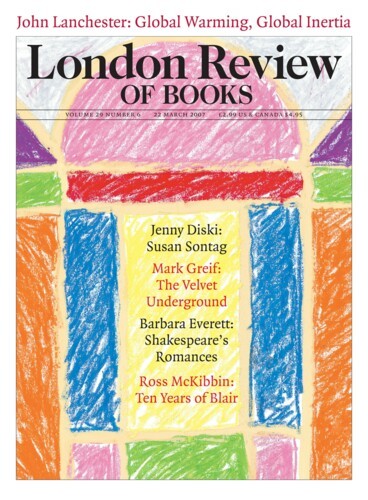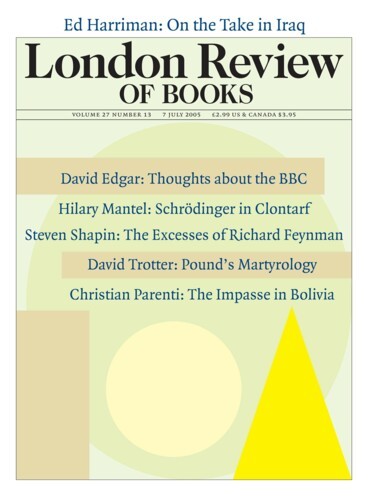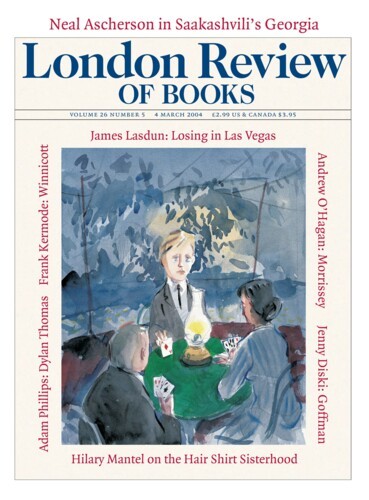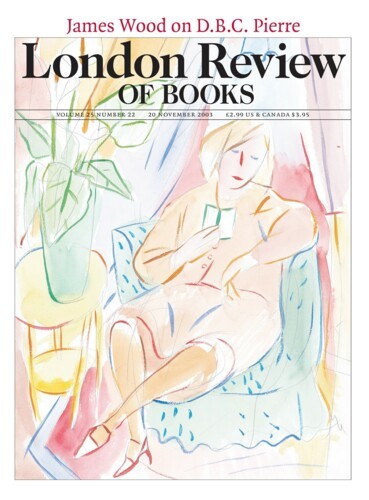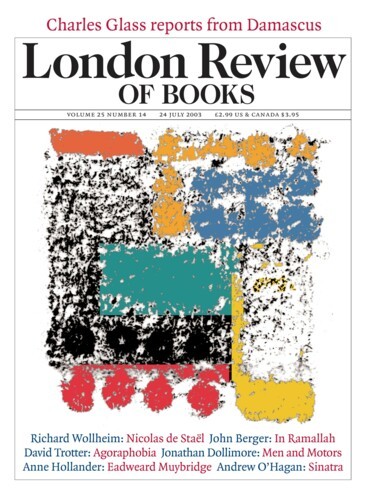Into the Future: The Novel
David Trotter, 22 March 2007
What counts as a novel? Any ‘fictitious prose work’ over fifty thousand words was E.M. Forster’s answer, in Aspects of the Novel. It’s a broad enough definition, in all conscience, though it has begun to do some useful work by excluding a wide variety of short fiction in prose, and some long poems, such as Eugene Onegin or Vikram Seth’s The Golden Gate, which are...
